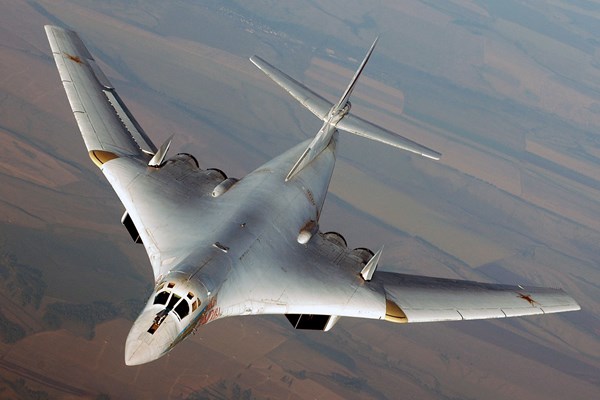Russia to send Tu-160 strategic bombers to Arctic
Russia’s Long Range Aviation is expanding its geographical area of activity and the scope of its operations, Lieutenant-General Sergey Kobylash, commander of the Long Range Aviation, told the newspaper Krasnaya Zvezda in an interview. He claims that the Defense Ministry intends to reinforce the defense of the Russian Arctic using Tu-160 strategic missile carriers.
“The flights of strategic bomber-missile carrier crews to the equator, to Indonesia, mean that the range of assignments is growing alongside the scope of the directions and airports where we have been instructed to show our presence. Last year a Tu-22M3 made a landing in Anadyr for the first time, and in Vorkuta. This year we plan to fly to Anadyr with Tu-160 planes too,” Kobylash said. He emphasized that the Arctic has strategic importance for Russia, which is why the military opens new airports there and uses new equipment which can function under Arctic conditions.
Kobylash commented on the recent flights by Russian bombers close to the coast of Alaska which were intercepted by F-22 fighters. He emphasized that despite the attention this incident received, there was nothing unusual about it. “With respect to our planes being escorted by the US Air Force’s F-22 fighters, we encounter them regularly, especially on air patrols. From one escort, as it was that time, to 5-7 escorts by various groups of foreign countries’ fighters, whose territories we fly near to over neutral waters,” the lieutenant-general explained. Kobylash stressed that the flights had taken place in complete accordance with international norms, the universally accepted rules also adhered to by the US Air Force. “Close to their borders, the aircraft of these countries have the same right to escort as we have to do air patrols,” he added.
Russian Tu-95 strategic bombers approached the coast of Alaska and the Aleutian Islands on May 11. F-22 NORAD fighters were scrambled to intercept them. Alexander Manyagin, commander of the Russian squadron, reported later that the American pilots had acted correctly, and not come closer than 100 meters. The F-22s’ escort flight lasted roughly 50 minutes.
